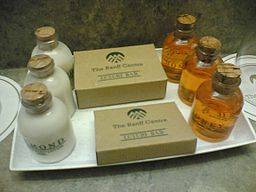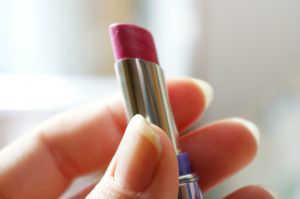If you are one of those people who has never had acne problems, then you have been quite lucky.
Acne is one of the most common skin concerns encountered by individuals especially those in their adolescent age when hormonal changes cause various skin-detriments that eventually lead to breakouts. But it goes without saying that this condition may affect people from all age brackets, and regardless of gender.
Thankfully, we have been provided with ample texts regarding the most known acne triggers. These bits of information allow us to know just which things to avoid, from food to lifestyle choices. But there are also lesser known causes of acne, and some of these may even be present in our favorite over-the-counter grooming and hygiene products. Here are some examples of chemicals we should steer clear of to avoid acne breakouts.
Photo credit Beth Tusch, RF, http://www.sxc.hu/photo/842778
Hair Products
 The key in choosing hair products- such as shampoo or conditioner- is to keep away from those which could potentially exacerbate oil accumulation on the scalp and face. These products normally contain these ingredients: silicone, PVC, copolymer, ammonium lauryl sulfate, isopropyl myristate, petrolatum, CVP, and sodium lauryl sulfate.
The key in choosing hair products- such as shampoo or conditioner- is to keep away from those which could potentially exacerbate oil accumulation on the scalp and face. These products normally contain these ingredients: silicone, PVC, copolymer, ammonium lauryl sulfate, isopropyl myristate, petrolatum, CVP, and sodium lauryl sulfate.
Tips: Even hair products with oil-free labels don’t always stay true to their claim, and most may still contain a significant amount of oil. In order to avoid breakouts from oil accumulation on your skin, make sure to thoroughly rinse your hair after using any brand of shampoo and conditioner. Shampoos and conditioners can also leave residue which can irritate one’s skin when the hair comes in contact with the face.
Cosmetics
 Makeup is made from at least a hundred of ingredients or compounds. Some of these are known acne triggers. The most notorious of acne cosmetic stimuli include wheat germ oil, carrageenans, potassium chloride, sodium lauryl sulfate, hexadecyl alcohol, algae extract, red algae, sodium chloride, isopropyl myristate, and laureth 4.
Makeup is made from at least a hundred of ingredients or compounds. Some of these are known acne triggers. The most notorious of acne cosmetic stimuli include wheat germ oil, carrageenans, potassium chloride, sodium lauryl sulfate, hexadecyl alcohol, algae extract, red algae, sodium chloride, isopropyl myristate, and laureth 4.
Tips: If you encounter a breakout after trying a new makeup product, there are two things which you could do. First is to change your way of makeup application – perhaps you are putting on too much or too harshly. You can also change your makeup applicators for there is a chance that they have already been contaminated due to prolonged use. Second, is to opt for a different makeup brand or product.
Editor’s note:- for a wide range of inexpensive makeup applicators to replace your existing ones, please use the link to view a great selection at Amazon.
Sun Screen
 Untimely skin aging as well as skin cancer is best countered through consistent sunscreen application. Unfortunately, applying sunscreen can cause something else entirely, —acne breakouts. This is why it is imperative that when choosing a sunscreen cream or lotion, you must say no to ingredients likely to cause breakouts.
Untimely skin aging as well as skin cancer is best countered through consistent sunscreen application. Unfortunately, applying sunscreen can cause something else entirely, —acne breakouts. This is why it is imperative that when choosing a sunscreen cream or lotion, you must say no to ingredients likely to cause breakouts.
Tips: Shop for sunscreen products which have been labeled as noncomedogenic which are designed to stop pores blockage. Water based variants are also recommended by experts. Opting for unscented products with few synthetic chemicals is also a smart choice.
Editor’s note – view a range of suitable noncomedogenic sunscreen products using the link to a selection of products at Amazon.
The general rule when it comes to shopping for grooming and hygiene related products is to pick those oil-free variants since excess of oil is the number one trigger of acne.
Guest author Marc Webster is a Parts and Components Specialist at All Time Medical, a company that sells wheelchairs and walkers for the elderly and disabled.